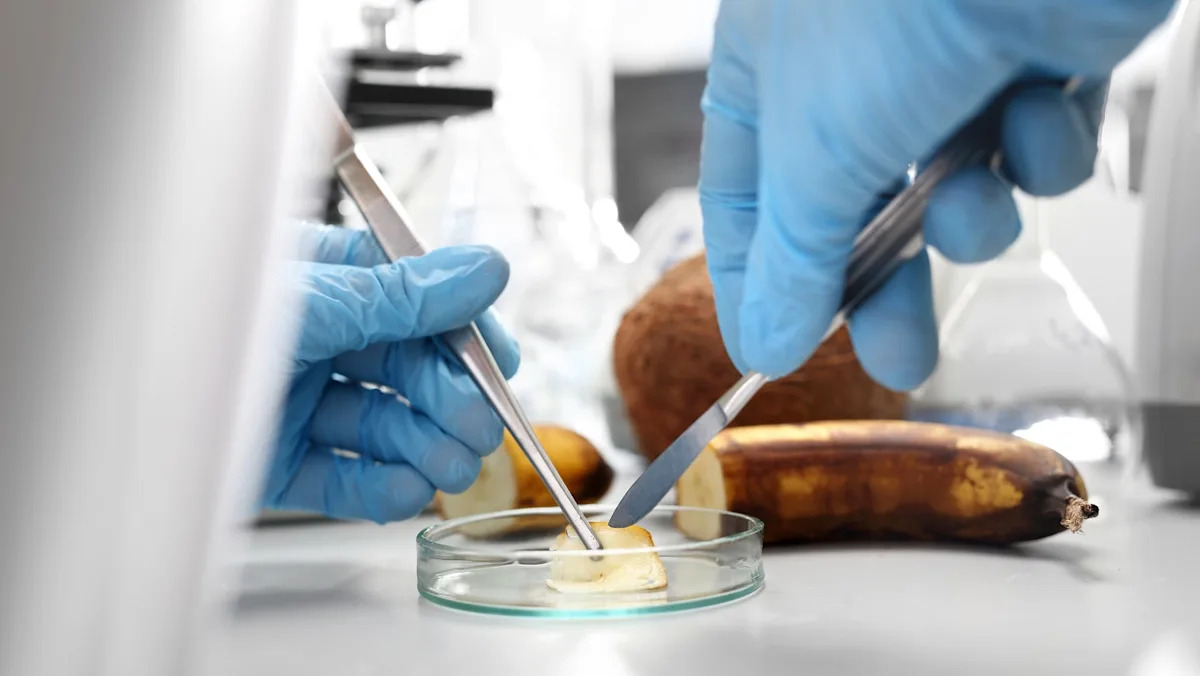
Food waste generates about 8-10% of global planet-warming gases and costs trillions each year, according to the United Nations Environment Programme. But a new study suggests electricity could help change that by turning rotting leftovers into useful industrial chemicals.
Scientists found that zapping food waste with a mild electrical current boosted the microbes that break it down, producing higher amounts of chemicals like acetone, ethanol, and butanol, as reported by Anthropocene. The approach could both reduce landfill waste and create valuable products from materials that are usually discarded.
Researchers at Ohio State University tested two species of Clostridium bacteria on sour cream and ice cream waste. In traditional high-heat fermentation tanks, the bacteria produced some useful chemicals. But in an electrofermentation system — where a conductor delivers electricity into a mix — the microbes made even more of those useful chemicals.
According to the study in the Journal of Environmental Chemical Engineering, when the two bacteria were combined, they generated up to 12 times more butanol at a lower applied voltage compared to higher voltages, showing how tuning the electricity supply can change results.
Lead author Saba Beenish said, “We are creating an industry from another industry’s waste.”
The discovery is as practical as it is cool since households are directly financially affected by food waste, and this can help put an end to the cycle. The Natural Resources Defense Council said in 2017 that the average U.S. family of four loses about $1,500 a year on food that goes uneaten.
Redirecting that waste into valuable chemicals instead of landfills could mean less pressure on food prices and grocery bills, while also reducing methane pollution that drives rising global temperatures and other changes in the climate. Reducing your own waste by meal planning or keeping food fresh for longer can also help.
Turning food waste into chemicals also lessens reliance on oil and gas. According to the Ellen MacArthur Foundation and the ISCC, most “platform chemicals” have historically been derived from oil and gas, which then serve as the building blocks for thousands of environmentally harmful products, including plastics and other goods.
Replacing those with waste-based alternatives reduces both pollution and the need for drilling, resulting in cleaner air in communities where refineries and chemical plants are concentrated.
The team’s findings show how electricity can unlock more value from food that would otherwise rot. If research like this scales, the leftover food scraps in your fridge could someday help power industries instead of filling landfills.
Join our free newsletter for weekly updates on the latest innovations improving our lives and shaping our future, and don’t miss this cool list of easy ways to help yourself while helping the planet.
Disclaimer: This news has been automatically collected from the source link above. Our website does not create, edit, or publish the content. All information, statements, and opinions expressed belong solely to the original publisher. We are not responsible or liable for the accuracy, reliability, or completeness of any news, nor for any statements, views, or claims made in the content. All rights remain with the respective source.
